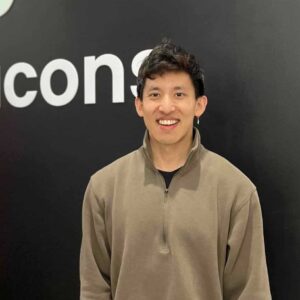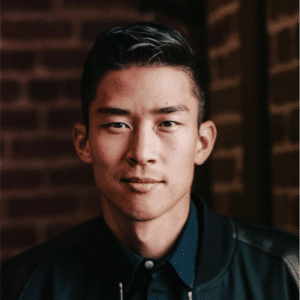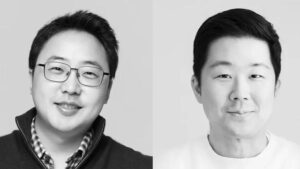Hell is the place you want to forget, but will never let you.
As I sifted through miscellaneous papers strewn across my sister’s home office, I managed to dig up my 8th-grade yearbook. “2013: Wydown Middle School” was plastered in dull, silver letters across the purple cover. A bittersweet surprise, flipping through the musty pages from eight years ago released memories long lost to the stresses of adult life. The “Justin Bieber” haircut, technicolor braces, and the “I’m too cool” poses for the photographer from yesteryear all came flooding back.
The final leg in the popularity race at Wydown, whoever managed to collect the most signatures was, of course, the best. Beaming after every poorly jotted “have a good summer” and then sprinting to the next classmate with a marker in their hand, it was a guestbook for my favorite people in life. Some just scribbled their name and others just scribbled. Some girls would add a heart next to their name and, trust me, my head inflated like a hot air balloon. Boys threw in neon green phallic objects and their massive signatures encompassed entire pages.
And then, at the bottom right-hand corner of the very last page, “CHINK.”

Nearly a decade later, I could barely believe, or even remember, what I was reading. The slur slapped the dumb grin off my face, replacing it with an intense furrowing of my brow as I furiously searched through the rest of the pages.
There. Again.
Someone crossed out the “babe” in “I love you babe” and wrote “chink” right next to it.
“I love you CHINK.”

Acting as if this was such a tremendous accomplishment, the scrawling of racial insults in an Asian kid’s yearbook, they even signed their names next to it. These were some of my closest friends, people I spent after school and entire summers with.
Why had I somehow blurred this part of my life out, the part of my life wanting to insult me in the most damning way possible? How could I forget that? How could I forgive them? Why did I stay friends with them? What was going on in my life then?
For the sake of my sanity, it seemed like my brain had managed to suppress all the painful wounds growing up brought with it. Every time I drove by the school building on my way to work or to visit Forest Park, I only remembered the awkward school dances chaperoned by parents, the mob of friends I constantly faced detention with, and the pretty teachers I wanted to give flowers to.
I didn’t remember the times my classmates stripped me of everything I was. I didn’t remember the time I threw a classmate into a bush during a fight because he had called me a chink. I didn’t remember spending more and more time struggling to get out of bed. I didn’t remember the days where I started feeling worthless because I wasn’t chalked up to be Asian.
The theme for 2013’s yearbook was “Falling Into Place”.
Falling into place implies that at some point, you’ll fit in.
As Asian Americans, we’re caught between a rock and a hard place, somewhere in the grey zone. But nothing could truly express what it’s like to never fully belong to a group, a family, somewhere you can call home.
Growing up in the United States has felt almost like walking around in purgatory, never quite getting to either side. To be honest, I’m not sure which side was hell.
On one hand, I’ll never quite be able to relate to the citizens of mainland China or Taiwan. I’d probably be looked at awkwardly as I strolled through the bustling streets of Beijing, asking for help with a thick American accent in my Mandarin and struggling to put words together. I’d scrunch my face, looking to the ceiling as I tried to convert Chinese yuan to US dollar at a bakery. I could barely fit the 250 years of United States history in my head, how could I possibly even get close to China’s over 3500?
On the other, I’ve called the Midwest home my entire life, yet people still manage to treat me like an outsider. Every time I meet someone new, it feels like I’m being asked where I’m from. An enthusiastic “I was born here” just isn’t satisfying enough for them.
“Where are you really from?
“Wisconsin.”
“Seriously, where are you reaaaalllyy from?”
“Oshkosh.”
“Oh my God.”
The assumption AAPI must be from somewhere else and not truly an American only perpetuates feelings of loneliness and disconnection, no matter how long we’ve been here. Imagine being asked by extended family if you’re actually related to them. Or showing up to work, only to be asked if you really work there.
But when you said yes, they might believe you. But only about 75%.
As is the nature of growing up in much of the US, I’ve been through predominantly white institutions my entire life. No matter where I went, I was constantly the only Asian person in the room, searching for people that looked like me. During the COVID-19 lockdown, I played the “spot an Asian first” game with myself and my friends. I’d go weeks without seeing one.
According to the American Census Survey of 2019, the Saint Louis Metropolitan Area, with a population of roughly 2.8 million, was only around 2.8% Asian or Pacific Islander — that’s less than half the 5.7% national average. Even with such a small presence, everyone around me seems to want to break that 2.8% number down even further, continuing to shuffle us into subcategories.
My ethnicity has always been some “who can guess his race the best” game show questionnaire and stops there. “Are you Chinese, Korean, or Japanese?”, followed quickly by an enthusiastic, “did I get it right?!”
Congratulations! I’m not Korean!
Whether it was an attempt to get a laugh, insult me, or just out of curiosity, I realized just how little AAPI are recognized across the country. Sometimes, the only representation we get in popular culture involves the stereotypical caricature found on Family Guy or South Park.
If I tried standing up for myself, shutting slurs and racist comments down, I’d be looked at like “what’s his problem?” Eventually, I just preferred to laugh it off and make myself the butt of the joke to get laughs. After all, being the “funny one” was much more palatable than being seen as “too sensitive.”
I don’t even look like Jackie Chan.
On top of “where we’re really from,” AAPI are subjected to an exclusive academic and social hierarchy, ranking us on just “how Asian” we really are.
If I got bad grades, I’d be a “dumb Asian,” and if I got good grades, that was just because I was born intelligent. Drank, smoked, and parties? Yo, you’re the “cool Asian”. Good at instruments? Bad at sports? Good ACT score? Bad GPA? Eventually, every aspect of my personality or talents had to be attributed to my heritage and sized up against other AAPIs “fitting the mold”.
Yet another iteration of abandoning my Asian counterpart in a desperate act to conform was felt in bringing my lunch. Completely normal for a student, yet after being told my food was “weird”, “smelled bad”, and getting laughed at, I eventually just resorted to starving myself instead. I threw out the hard work my mom put into making my meal just so I could try fitting in better.
Yet as hard as I tried, whether it was letting myself be the punchline or ditching my lunch, I was still rewarded with “chink” written in my yearbook. There is limited information about the origin of the phrase as it originated in the 1880sduring the railroad boom. It may have referred to the sound driving a stake into the ground with a hammer makes or to the Chinese workers’ unique eye shape, but the best way to describe it is “the n-word for Asians”.
The prevalence and overall allowance of the slur persists in American media. Even in 2020, The Economist writes, “Yet there is a chink of light in this dark sartorial night […]” in an article about mandatory masks. In 2012, Disney/ESPN headlined an article with “Chink in the Armor” when referring to NBA player Jeremy Lin. Tyler, The Creator, included the slur in his 2011 release “Fish” with “And in the blink of an eye I can make a white girl look chink”.
In 2013, it was plastered twice in my middle school yearbook, which has only reaffirmed the fact: it’s okay to be racist towards Asians.
It wasn’t until several years after graduating high school until I realized the power of embracing my heritage.
There I was, in quarantine for months on end in 2020, spending however many hours on TikTok. And all at once, the viral trend of Chinese street fashion compilations caught me by surprise. Confident strides amidst the paparazzi, impeccable brand-name outfits, and perfect skin stunned their audience. Over and over, the tsunami of comments fawning over how good they looked was nothing but praise for people that looked.
Like. Me.
Those comments were such simple gestures, yet completely shattered my perception of how I was seen.
“People actually think Asians are attractive?” brought a two-decade drought of positivity to an end.
Trust me, I know how crazy it sounds. But after years of being told I was unattractive — “you’re good looking, for an Asian” — witnessing overwhelming positivity for AAPI skyrocketed my self-esteem. I found out I didn’t need to always get my haircut like Tom Cruise and Express Men wasn’t necessarily the best place to get clothes. It was a new chapter in my life, learning I didn’t need to “be white” to be accepted.
The new trend of uplifting Asians and applauding positive representations in culture and mass media (thank you, K-pop, Shang Chi) is an incredible movement. The ability to draw inspiration from those that look like you and share similar origins is essential. In a rally against the surge of violent hate crimes against Asians, we’ve seen #StopAsianHate trending, the embracing of all-Asian casts, and overwhelming support for AAPI owned businesses. Being told verbal and physical assaults are unacceptable has set a new, long deserved standard for how AAPI deserve to be treated.
However, the subtle dehumanization, boiling us down into either genetic gifts or a failure to meet stereotypes was just subjugation to decades-long gaslighting techniques most people pass off as harmless humor. As a result, my culture and personality were inherently deemed foreign and never allowed me to assimilate.
As public perception of AAPI improves across the board, I have learned to start rebuilding the love and acceptance for myself as an Asian American and fight back against what was once acceptable.
So tell me, what was it like for you?


